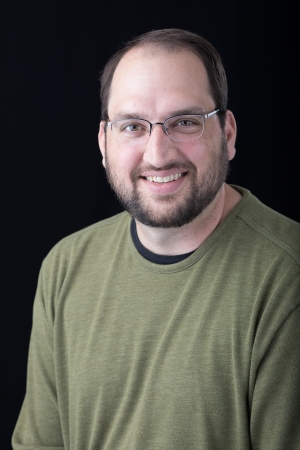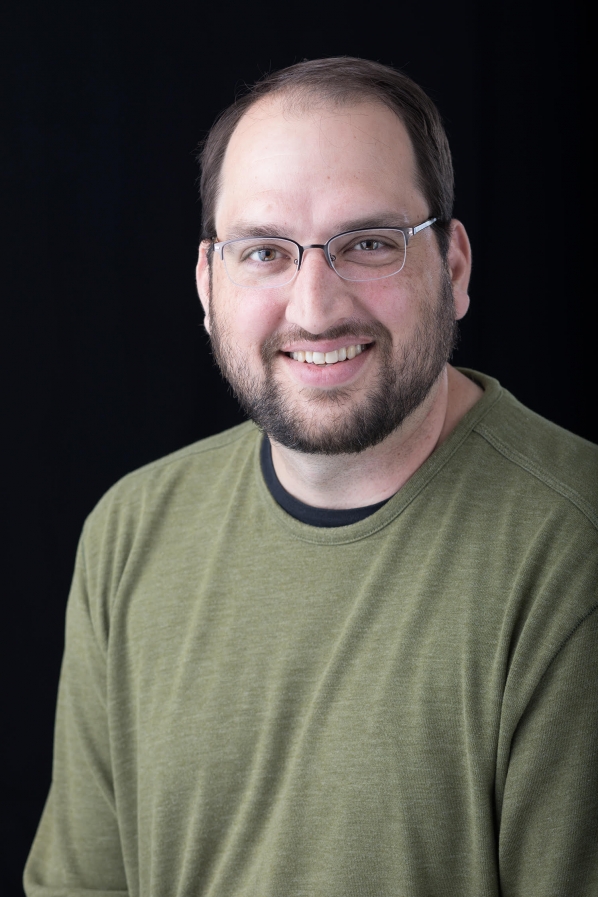For the Fall 2018 installment of our Featured Faculty series, we sat down with Dr. Cortney Bouldin, an Assistant Professor in the Biology Department, who specializes in Molecular Embryology.
Why did you become a biologist (and specifically the type of biologist you are)?
I became a biologist because I am fascinated by the myriad ways that molecules, cells and organisms connect. At every level, there are complex interactions within the different communities, and I love the idea of contributing to our ability to understand these interactions. I chose molecular biology because I am intrigued by the fact that all of biology is united by four deoxyribonucleic acids, and that our collective understanding is sophisticated enough to manipulate DNA and check the effects. To me, there are few things more fascinating than the information contained in DNA, and my interest has spread to thinking about how the information is used by cells, who have a limited number of ways to communicate. With time, I have come to appreciate that the most fascinating places to think about molecules are in an embryo that is rapidly changing - somehow the succinct language of cells accesses the contents of the genome to turn zygotes into adults who can then reproduce on their own. My favorite questions have come to use molecular biology techniques to understand how the earliest cells of the zygote, stem and progenitor cells, integrate self-renewal and differentiation.
When did you know this was your career choice (Discuss the process through which you ended up choosing this as a career.)?
I have always had a keen interest in science, math and problem solving. When I was a senior in high school, I had a phenomenal biology teacher who pushed my curiosity toward the biological sciences. In class, I had my own desk and bench space, and was regularly able to explore concepts we discussed in class with my own hands. I relished this kind of environment and carried the gratification that came with being immersed in a particular concept with me to college. As a biology major at a large university, I was challenged, in large lecture hall classes, by what I perceived as a lack of what had originally attracted me to the field (most of my classes had over two-hundred students, auditorium seating and multiple-choice exams), but I enjoyed the labs associated with my coursework. Midway through my college career, I considered switching majors and decided to register for a graduate-level molecular biology course, which I knew would be more intimate and more challenging, and looked for work in a research lab on campus as a last effort before the change. I was stimulated by the graduate-level course in ways that reminded me of high school and I performed well. I also found an opportunity as a dishwasher in a lab in the medical school where, after my job was complete, I would volunteer to help graduate students and postdocs with their experiments. Lab research quickly became a passion, and I was fascinated by protein structure and gene regulation. After two years of working in a research lab, I found that I had enough experience to earn a fulltime job when I finished my undergraduate degree. During a gap year, I worked as a lab technician on a project that investigated the effects of nutrition on gene regulation during embryonic development. I was hooked, and I applied for graduate school that spring.
I now feel fortunate to be able to call what I do work. I remember watching a fellow student struggle to give a presentation and realized that I was having a great time sitting in the audience. Not because I enjoyed watching a peer struggle but because I thought of us as pioneers. The data being considered was the student’s own and I realized that this was the best way to learn about cutting-edge discoveries, in spite of the struggle not because of it. From watching presentations like this in graduate school and as a postdoctoral fellow, I have learned to appreciate the teacher-scholar model. Making discoveries and explaining them to tiny rooms of experts could not be enough for me; I aspire to share my passions and discoveries with the largest audience I can effectively reach.
What do you like most about teaching? What do you like most about doing research?
In my mind, these two activities are intertwined. To be an effective researcher, one must be able to teach audiences about scientific findings, and to be an effective teacher, one must be able to think broadly about important questions in a particular field. On research, I draw pleasure from the unknown aspects of the job. I like reading papers and synthesizing an understanding of a unique area of biology. I then find it fun to think about what my lab and I can do to better understand parts that are murky. I also get immense pleasure from experimental design and troubleshooting. For me, the setup is almost as exciting as seeing the result. If research is most effective when focused on the unknown, teaching is an excellent reminder of what we know, and a room full of students has a unique way of reminding me to keep perspective and enjoy the process of learning. I often walk away from the classroom feeling refocused, reinvigorated and able to creatively tackle a problem that has snagged my research.
What advice do you have for undergraduates/graduates pursuing degrees in biology these days (or advice on how to be a successful student at App State?)
My advice to the biologists of the future is to remember that you have chosen an adventuresome field. We are all trying to gain a deeper understanding of life. Sometimes this is best done in a classroom, sometimes it happens in a lab setting and sometimes your curiosity will exceed the bounds of a reasonable curriculum. If you’ve truly engaged with the learning process, your training will have prepared you for every possibility. Further, if any effort is worth time and money in the field of biology, the path cannot be certain, so even the well-trained should expect uncertainty. Be diligent, be observant, stay flexible, and if you feel like you are lost and struggling, find ways to remind yourself that you are not alone.

